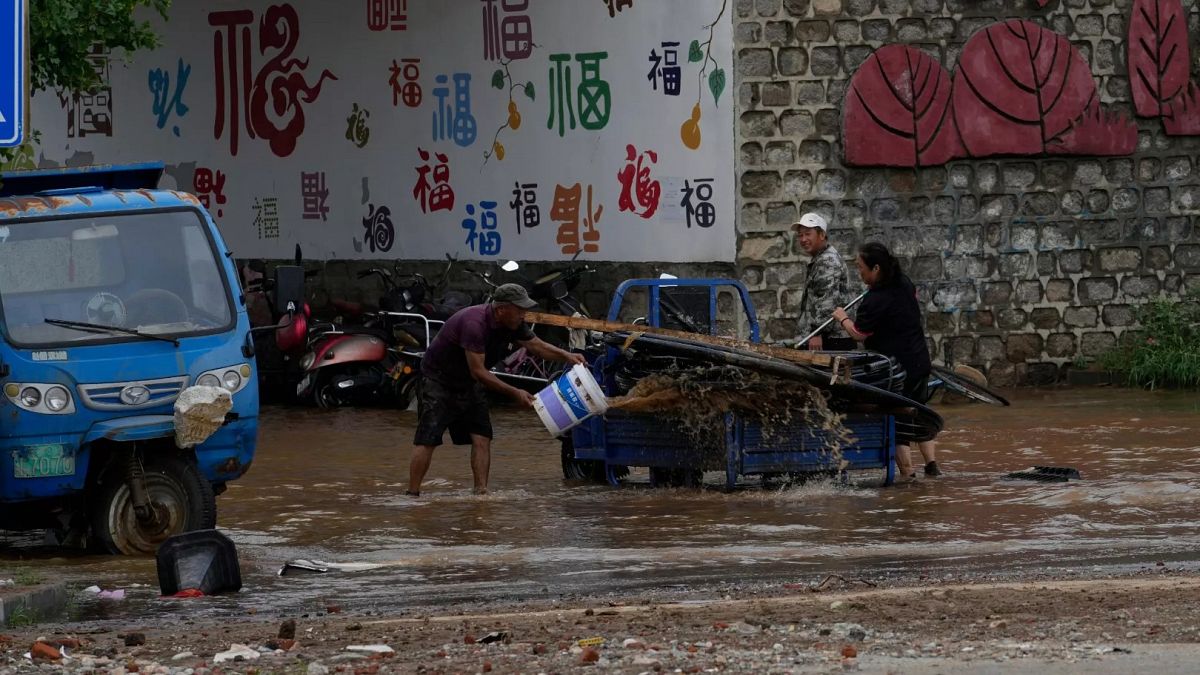

In recent days, various parts of the world have been confronting intense weather conditions, displaying the dynamic and sometimes harsh character of our planet’s climate system. Northern China experienced heavy rains causing severe floods, while nations in southeastern Europe faced record-breaking heatwaves that have brought challenges but also highlighted the resilience and adaptive spirit of those affected. Amidst these events, efforts are ongoing both at local and global levels to address these issues, shining a hopeful light on the importance of preparedness and collaborative action.
In China, northern regions have been hit hard by relentless downpours, resulting in tragic consequences. At least four individuals lost their lives in the midst of the flooding and several more are reported missing. In response to this crisis, Beijing authorities have implemented a top-level emergency protocol, urging citizens to remain indoors for safety. The government has closed schools and halted construction work, emphasizing population protection as a priority. These measured steps also include the suspension of outdoor tourism and related activities, trying to ensure public safety until the extreme weather subsides. Such coordinated efforts underline the significance of readiness and the importance of swift action in the face of natural disasters.
A similar narrative of extreme weather unfolds in southeastern Europe, where a ferocious heatwave took hold. Temperatures soared to unprecedented levels, notably with Turkey experiencing a record 50.5°C in Silopi, marking it the highest temperature ever logged in the country. This punishing heatwave extended across neighboring regions including Albania and Serbia, pushing daily temperatures to a peak of 40°C. Yet, nature offers respite as a refreshing northerly airstream heralds a cooldown, extending relief to millions who have persevered through this torrid period. Communities have endured, and now anticipate the cooler clime that promises to ease the strain on both residents and emergency services tasked with managing the crisis.
Meanwhile, Romania faces its own challenges with intense floods striking the region. Efforts are focused on managing the immediate impacts while providing support to affected populations. The integration of local initiatives with broader disaster management strategies will aid in rebuilding and recovery processes, fostering a hopeful spirit amidst adversity.
Turkey and Albania have contended with wildfires compounding the severe weather patterns. The valiant efforts of firefighters are a beacon of dedication and bravery, underscored by the tragic loss of three volunteer firefighters in Turkey. Their vehicle overturned near Bursa amid treacherous conditions. In total, at least 17 casualties due to these fires have been recorded since late June, a somber reminder of the dangers posed by these natural catastrophes. However, these events accentuate the valor and perseverance of individuals and communities striving to overcome these difficulties.
Amid these occurrences, global attention is also being drawn to the upcoming COP30 summit in Belem, Brazil. This international gathering represents a vital step toward addressing the complex issues underlying climate-related challenges. World leaders will convene to discuss the urgent realities of climate change and explore enhanced measures to tackle inequality. The forum aims to reinforce a cooperative global approach that emphasizes sustainable development, strengthening shared commitments to environmental health and resilience.
While severe weather conditions present ongoing challenges, the collective response illustrates the resilience and adaptability of societies across the globe. Countries are joining efforts, not only reflecting on the trials caused by these extreme events but also embracing an opportunity for significant dialogue and change on the world stage. This dialogue fosters optimism, as communities and nations unite to cultivate a more sustainable and secure future.
Source: {link}
